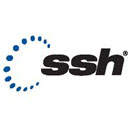Linux: gnome-keyring setup as Freedesktop SecretService
26 February 2020Currently, I’m using KeePass as passwords, RSA-keys, and as the Freedesktop SecretService, see the KeePass: an MFA TOTP codes, a browser’s passwords, SSH keys passwords storage configuration and Secret Service integration post. The first issue I faced with during such a setup is the fact that KeePass’ database is synced between my computers (it’s database… Read More »







